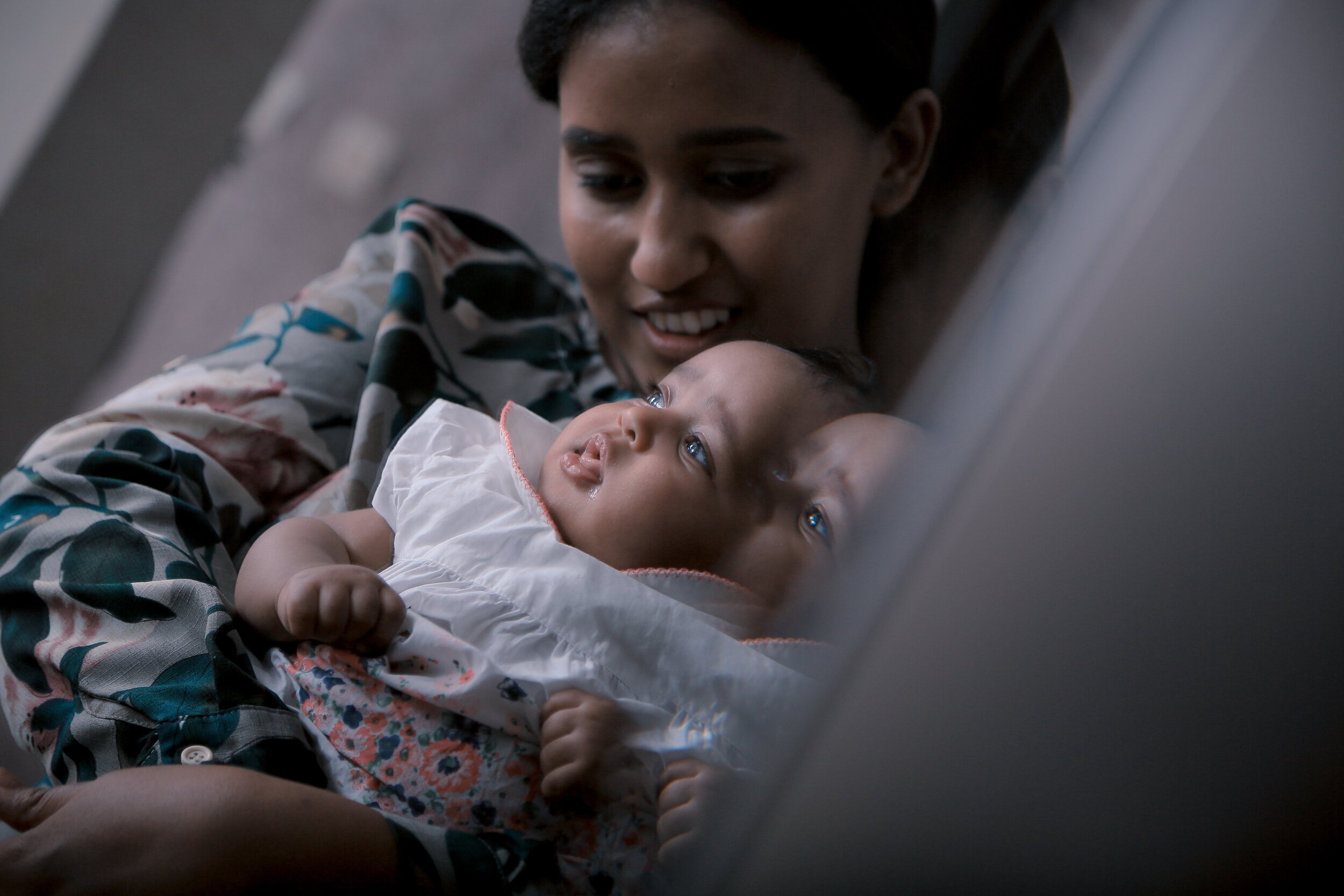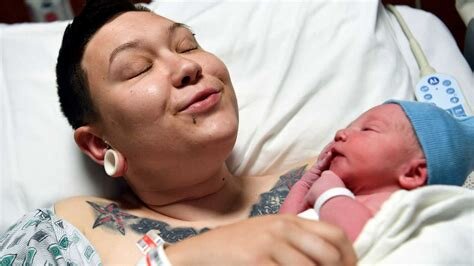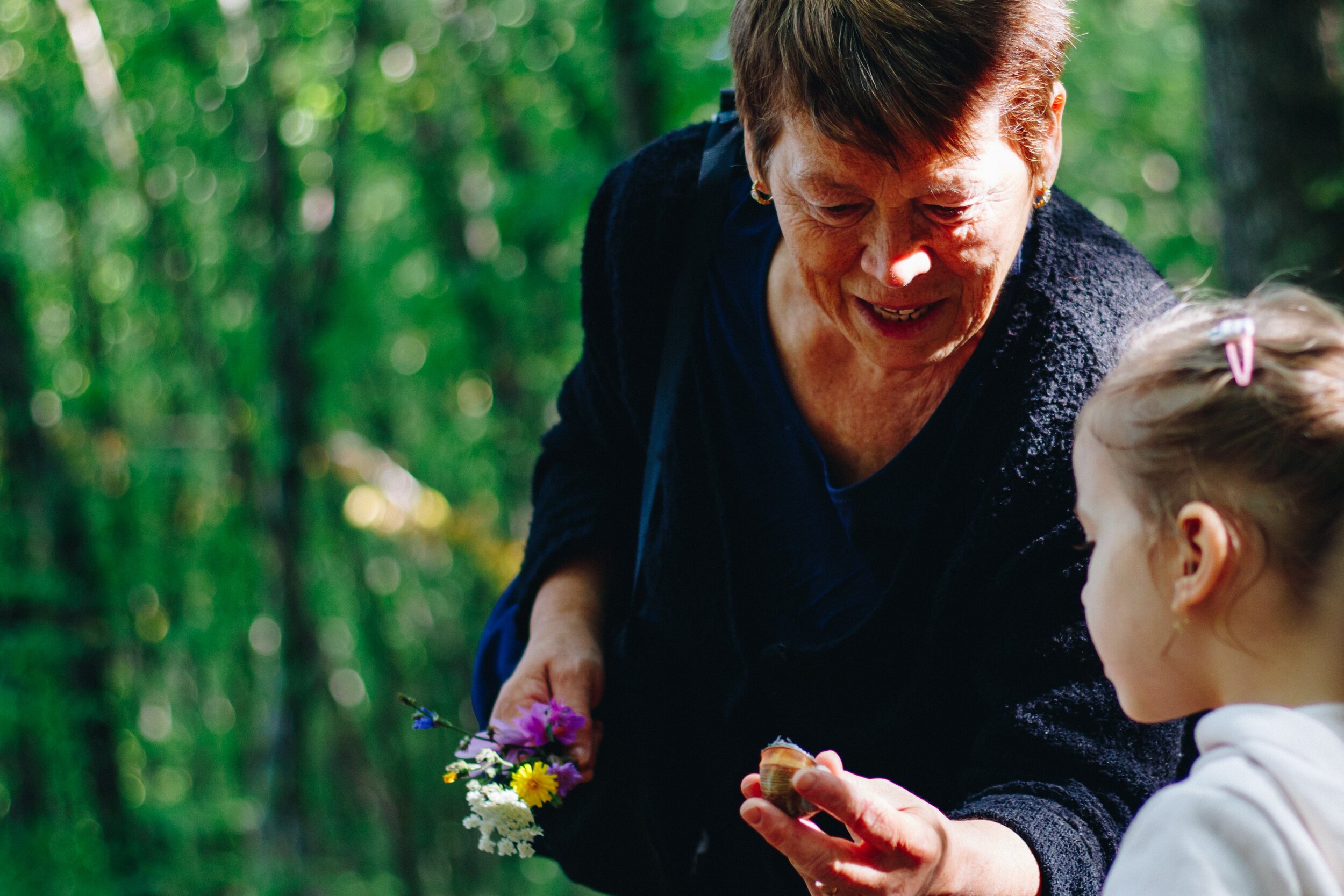How To Birth A Mother
I love the merry, merry month of May. Not only are we in the northern hem fully riding spring’s blooming energy, it’s also the month where we celebrate mothers of all kinds, here in the U.S.
There are mothers who birth and mothers who don’t. There are mothers who don’t conform to gender binaries and those who embrace the Feminine. There are mothers of living children and spirit babies too. There are mothers who are also grandmothers and aunties.
No matter the kind of mother, this is a time when I try to find the right gifts or rituals to offer the mothers in my world, that say “You are loved. You are appreciated. I recognize your sacrifice, your love, your commitment. You are honored.”
High stakes for what is oft-considered a simple day of appreciation.
But it feels important because, of all the people who work tirelessly for society, no one does it quite like a mom.
I am in the process of becoming a certified traditional postpartum care provider, which is someone who holds the ancient wisdom of tending newborn mothers & postpartum bodies in their recovery from birth and their transition to motherhood.
I feel the weight of the wisdom I carry, and how it may be triggering for some, elusive to others. But even in my logical mind, it just makes sense: by tending to mothers’ physiological, emotional and spiritual health in one of the most vulnerable times of their lives, we tend to the health of her family and, by extension, the health of the whole society.
This is not part of conventional care in the United States. Yes, there are amazing doctors in hospitals, and resourceful midwives abound. But there’s a whole piece of the puzzle that they are not trained in - the after care.
What is traditional postpartum care?
For any womb carrier who grows and births another human, there are physiological, psycho-emotional, and spiritual tolls to process.
Even the sweetest, most calm birth will require healing. That is part of the design of bringing life into this world. It’s messy and uncertain and chaotic. It demands attention.
Before anyone calls me out for cultural appropriation, let me acknowledge that in every single culture in this world, there are birthing practices cultivated from centuries of birth. I’m not here to highlight one culture over another, but to share what they all have in common.
The 4 principles of
postpartum care:
Rest
Warmth
Nutrition
Bodywork
These principles are all based on what supports a mother’s ability to thrive postpartum, and they all require a strong community to implement.
Our children’s wellbeing is reflected in our mothers’ wellness.
Rest is required for all healing processes in all bodies of all living beings. So why should it be any different for our mothers? Taking care of a newborn is enough work.
The added strains of tending their home and older children, preparing food, running errands are ideally held by close friends and family.
With more rest comes proper physiological resilience: tissues repair quicker; breast milk lets down easier; oxytocin can flow between mother, baby and partner to create a deeper bond.
Warmth, like rest, is a requirement for all living beings to heal. Wounded tissue during childbirth behaves just like any other wounded tissue — it requires thermal stimulation to dilate blood vessels and activate the immune system. With swelling comes the flow of blood and lymph into the injured area, the body’s natural defense mechanisms.
For bodies who have just expanded to allow their baby to come through, they must be gently coaxed closed with a warming environment, warming foods and warming self care techniques.
Nutrition is always a tricky one. Everyone always has a lot of deep beliefs around what to eat. I will simply note that warming, soft foods that support digestion with high quality fats will not only provide good nutrition to the newborn mama but will continue to support the healing process.
Learn more from @cloverandtimothy, @mothermoon and @listimpone on Instagram, some of my favorite postpartum chefs!
Bodywork can look like so many things. It can be done by a professional like a pelvic floor therapist or massage therapist. It can be done by the mother, herself, or a group of close friends.
There are many simple practices that support the mother in the early weeks of postpartum, including oil massage that warms and lubricates the swollen tissues, yoni steaming that will help support the toning of the pelvic floor as well as cleanse the uterus from any excess birth material.
There are even simple, gentle movement practices that can be done in the name of healing rather than exercise in the early stages of postpartum.
****
My postpartum care practice is just beginning to bloom. So I'm offering a sliding scale price for postpartum guided self-care sessions.
During each session, Mom will learn about one of the 4 foundational needs for postpartum health and complete a guided self-care practice.
Why is postpartum care necessary for modern mothers?
Traditional Chinese Medicine wisdom avows: how we care for our postpartum bodies now will be reflected in our health for the next 40 years.
Ancient Ayurvedic traditions recognize the "sacred window" of the first 42 days (or 6 weeks) as a time when a mother is cloaked in birth energy -- when the veil between this life and the spirit realms are thin.
Birth is a time when old wounds and patterns can rise to the surface - feelings and beliefs long forgotten - that are asking to be tended. While this is an opportunity to reset and realign the body, mind, and spirit, it is a tender and painful process, just like any transformation can be.
In our modern world (even before Covid) most parents are raising their children in relative isolation. Yes, we organize play dates and school activities. But the day to day management of living is heavily set on the shoulders of one or two adults most of the time. This is where it gets tricky, because the community is pivotal to all other pillars of postpartum care.
The truth is we can’t do this kind of care for our new mothers without one another. It was never in our original design to tend to new life alone.
As a result of parenting in isolation, essential, foundational, necessary postpartum care gets put into the Luxury category and is often reserved for those who can afford a professional service.
The Good News
Traditional postpartum care was not done in fancy offices with expensive equipment. It was performed by medicine women, sisters, friends and aunties who had the mother’s best interest at heart.
All that is required is reverence for the global traditions of mother tending and some basic knowledge.
What you can do for yourself as a new mom:
Prepare - Start before you have your baby by creating a postpartum plan. And tell everyone you know who is on the path to motherhood to do the same. Check out The Fourth Trimester for excellent tips.
Start Simple - Investigate 2-3 self care techniques you can apply to your daily or weekly routine. If 2 is too many, go for one.
Consistency - Practice is more important than perfection. Try one element for 40 days. Or try 3 elements for 2 weeks. Whatever you do, allow it to be experimental. Listen to how your body responds and adjust your care as you wish.
Ask for help - Remember you are not meant to do it alone. Consider who will be part of your trusted circle. Ask a trusted friend to support you by massaging warm sesame oil into your feet or holding your babe while you take a shower. My self-paced online course, Returning To Center, was designed to help postpartum bodies reconnect to themselves and their centers after giving birth.
What you can do for a new mother:
If you know of those in your community who are planning to have a baby or just had one, there are ways you can support them, even if you are not part of their inner layer of support.
By simply understanding the intense vulnerability of the sacred window, you can meet these mothers with slowness, gentleness, and compassion. Even that can be enough.
Even better, gather your community and gift your mothers the services of a postpartum care provider who is uniquely skilled at tending to their needs.
Many mothers do not know about this delicate truth of postpartum care. They don’t allow themselves the time to slow down, rest, stay warm and let themselves be nurtured by others.
We’ve all been conditioned to believe that stillness isn’t progress, that we need to push forward and put our children’s care above our own.
In truth, our children’s wellbeing is reflected in our mothers’ wellness at every level - physiologically, emotionally and energetically.
This Mother’s Day, hold your mothers with reverence, no matter how old their children are.
Mothers, take a moment to celebrate all you do and all you are, even with just 10 minutes a day of self-centered care.
To all the mothers of the world, I bow deeply to you for all you offer this world. May your vitality extend deep below, high above, and all around you.
Want support on your birthing journey?
Check out my signature program, The Birthing Body, to learn self-care techniques for pain relief while nourishing your body-mind, spirit, and newborn too.
Practice with Me
Try this 17-minute mother-centered movement routine.
It’s appropriate for new mothers in their first six weeks after birth, safe for both vaginal and cesarean deliveries. It’s also great for anyone drawn toward a gentle movement practice.
Tell me about your postpartum experience below.
Did you have support or desire it?
What types of mother-centered time did you carve out for yourself?











